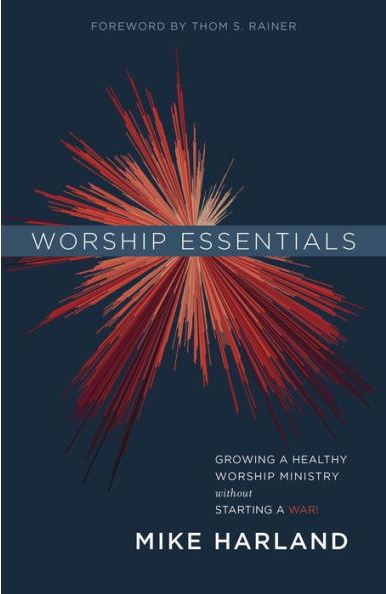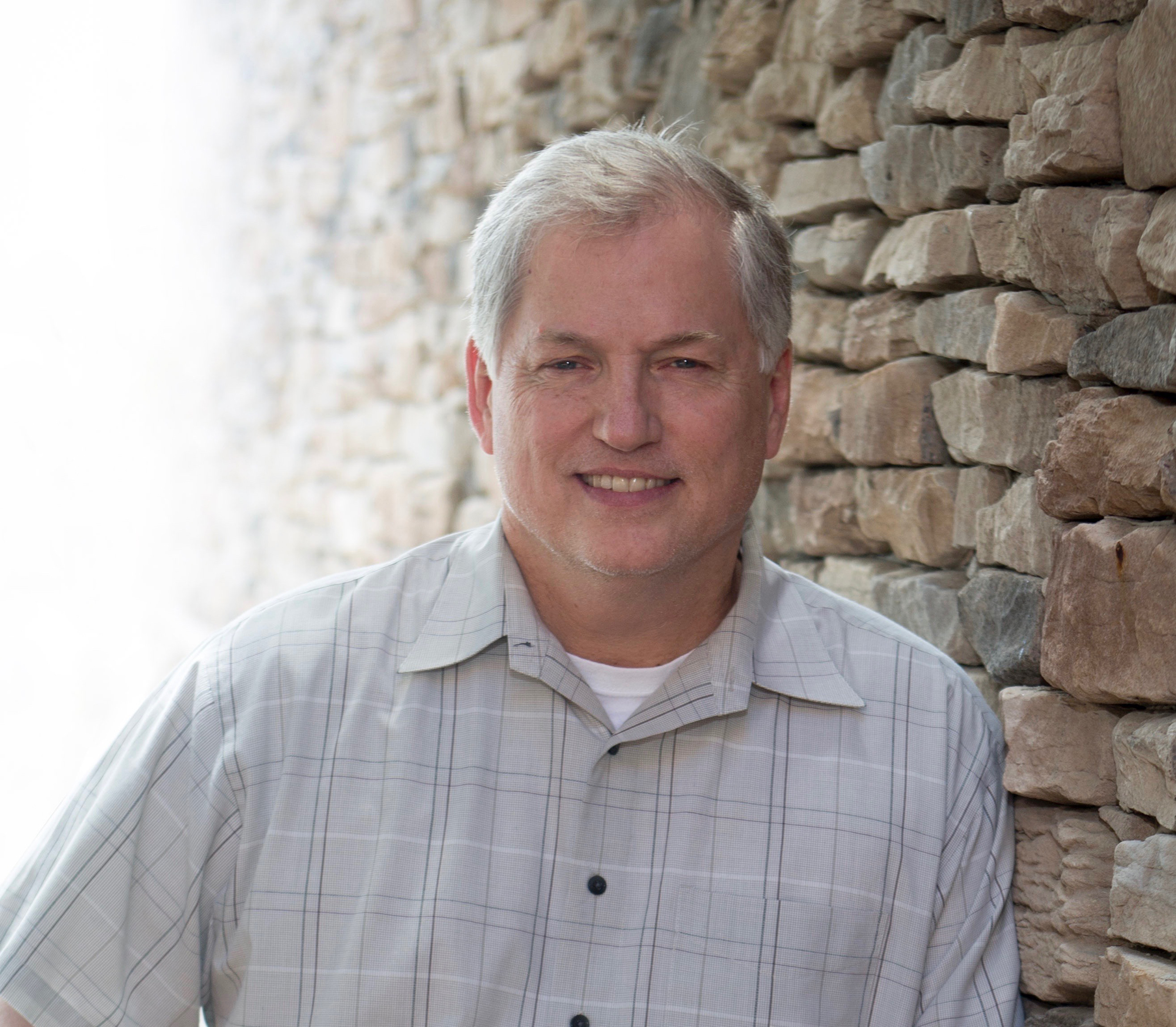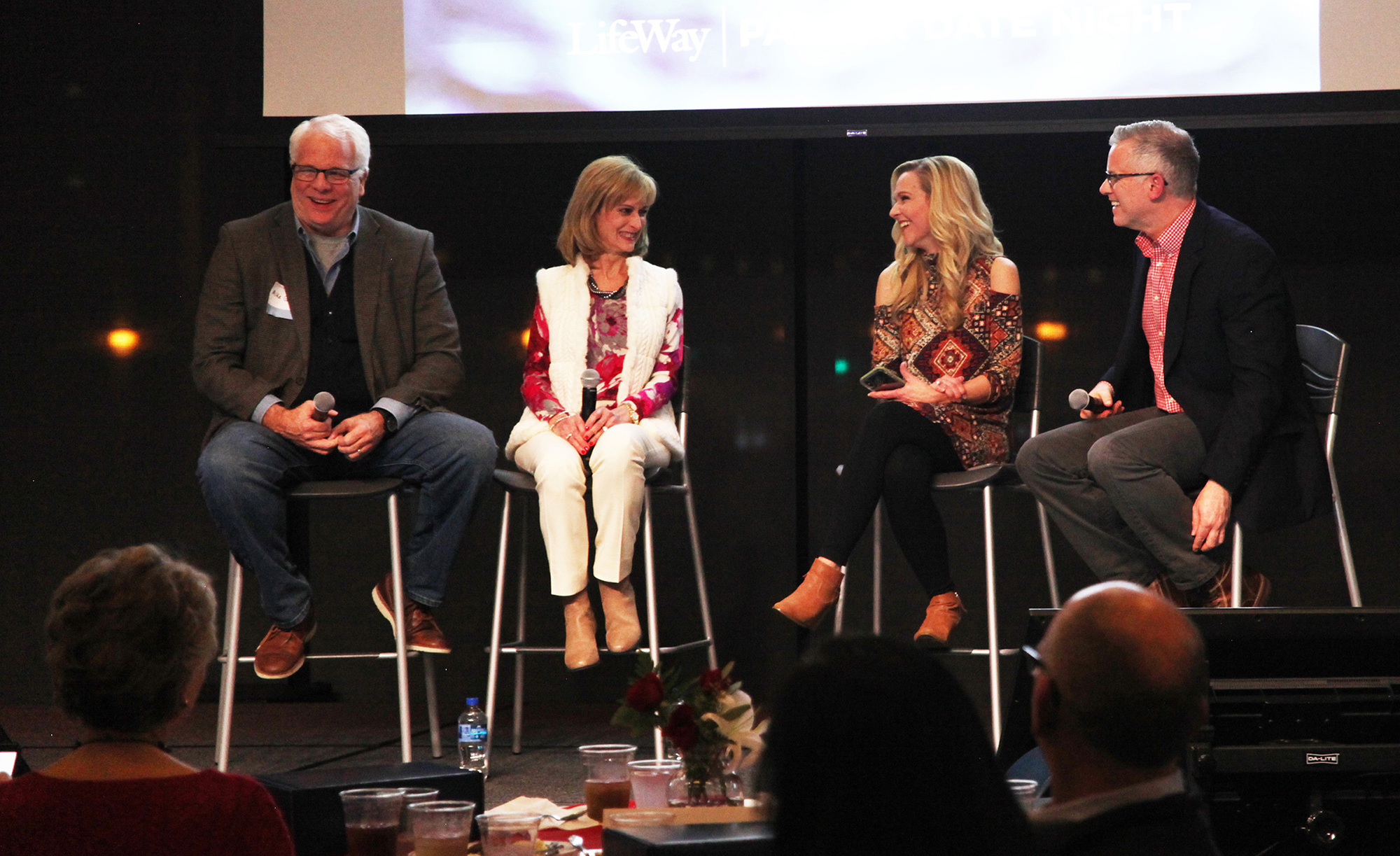
NASHVILLE (BP) — When Mike Harland joined LifeWay Christian Resources President and CEO Thom S. Rainer a couple of years ago on the “Rainer on Leadership” podcast, he never imagined those conversations about music ministry would lead to writing a book.

“Dr. Rainer began having me pretty regularly as a guest,” Harland said. “His audience is largely pastors. We began to talk about worship issues, and the podcast became a safe place to address those pastors’ questions about worship ministry.”
The audience responded overwhelmingly to the dialogue.
“Dr. Rainer lent to me his credibility with church leaders, and our conversations on the podcast became dynamic,” Harland said. “I started getting invited to pastors’ conferences for extensions of these discussions. Not all pastors feel equipped to have the conversations because they don’t know much about music.
“A lot of churches and leaders don’t have a sense of what they’re trying to accomplish with music,” he said. “The aim of Worship Essentials is to help them understand how music fits into the overall strategy of the church. This is for leaders of all stripes.”
Harland identifies four key values he says transcends preferences, generational gaps and other issues that can affect a worship ministry:
— Tell the story
— Make true disciples
— Engage the body
— Aspire with purpose
 “Churches struggle with, for example, the unintended consequence of contemporary versus traditional,” Harland said. “And in this way, they struggle with the third value I discuss in the book, which involves engaging the body — the whole body. Not just parts.”
“Churches struggle with, for example, the unintended consequence of contemporary versus traditional,” Harland said. “And in this way, they struggle with the third value I discuss in the book, which involves engaging the body — the whole body. Not just parts.”
His experience and observations have shown him that while churches often realize their worship ministry can create divisions, they often go about correcting it the wrong way.
“There seems to be a segregation of generations. Often churches realize they’ve created multiple congregations. And sometimes — with good intentions — the things they change solve one issue, but create five more.”
Harland said he hopes anyone who reads this book will know they’re reading from a traveler on this journey, as he wrote it from his experiences as both a singer and a shepherd.
“We have a lack of leaders — the kind of leaders to lead a healthy worship ministry,” he said. “It seems many don’t understand there’s a difference between an artist and a shepherd. An artist sings for the sheep, but a shepherd teaches the sheep.”





















